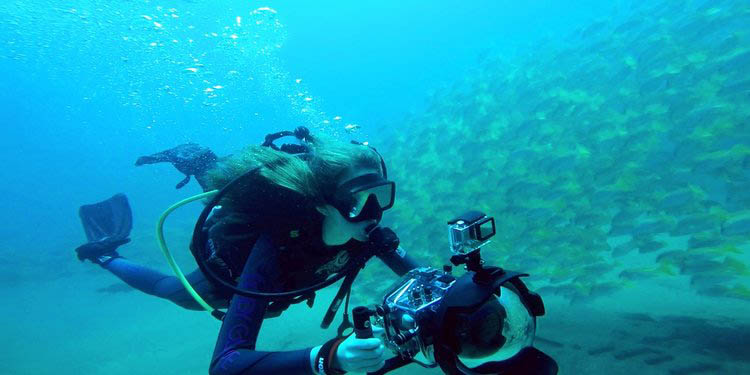When I picture a worst-case scenario for the future it is one where solar, wind and hydro proliferate. Rather than seeing these technologies as solutions to our environmental problems, I see them as a way of prolonging the lifespan of empire, powering this destructive culture and allowing industrial humans to continue their exploitation a little bit longer.
Bright green environmentalism is the belief that through 100% renewables, recycling and electric cars, we can have industrial civilization without destroying the planet. Deep green environmentalism is the belief that we need to radically change the way society functions in order to be sustainable.
Over that past several decades bright green environmentalism has become mainstream. With resolutions like the “Green New Deal”, the push for so-called renewable energy is becoming a real political possibility.
There are a lot of claims being made about “green” technologies that are frankly untrue.
Read about Sea of Life from Julia Barnes
Words like “clean”, “free”, “safe”, and “sustainable” are often thrown around by environmentalists. They act as if solar panels and wind turbines grow on trees. But examining the unseen processes involved in making these technologies reveals a very different picture.
A dystopian lake filled with toxic waste, mountain-top removal copper mining, industrial steel manufacturing, global shipping, large scale habitat destruction, sand mining, and massive greenhouse gas emissions are all essential parts of renewable production.
While making this film, I had a chance to interview many prominent champions of renewable energy. When I brought up the harms these technologies cause to the environment, these people would often brush them off as small sacrifices that need to be made.
We hear a lot of talk about sacrifice when it comes to so-called renewables. They want to sacrifice the desert to put in solar panels. They want to sacrifice rivers to put in hydro. They want to sacrifice mountain ridges, birds and bats to put in wind turbines. It doesn’t take long to notice a pattern.
It’s always the natural world being sacrificed and industrial humans receiving the benefits.
Producing more industrial electricity does not help the natural world because the natural world doesn’t need industrial electricity.
I recently read an editorial by Suzanna Jones in which she says, “Sacrifice is needed, but those sacrifices should no longer come from the natural world. They should come from us, from our materialistic way of life, from the bloated economy and those who profit from it.”
The idea that producing more energy from solar or wind will lead to less carbon emissions is the primary argument in favour of “renewable” technologies. Yet this couldn’t be further from the truth.
Solar panels and wind turbines have been called “alternative fossil fuels” because they require fossil fuels at every stage of production from mining, shipping and manufacturing, to installation. And when energy from solar and wind is added to the grid, rather than displacing fossil fuels, it simply adds to the amount of energy at the disposal of civilization.
The high-energy lifestyle we have become accustomed to is an anomaly in the history of our species, and whether that energy comes from solar or coal, it comes at a cost to the natural world.
“What is energy used for when it’s produced in this society? It’s used for the military, it’s used for producing cheap consumer goods, it’s used for entertainment, it’s used for transportation. It’s mostly used for non-essential luxuries that are destroying the planet in one way or another,” says Max Wilbert in my new film, Bright Green Lies.
There’s a reason bright green environmentalism has become so popular. It tells a lot of people what they want to hear. It is an easy answer that gives us the illusion of change without threatening the status quo.
Those of us who are serious about protecting the natural world must not take these technologies at face value. Renewables do not represent a meaningful solution to the climate crisis. Instead, they distract us from real possibilities.
Tackling the most pressing issues of our time will require us to look beyond the mainstream technological fantasies and ask deeper questions about what needs to change.
Article/Video contributed by Julia Barnes

Julia Barnes is a diver and Canadian filmmaker who wants to teach people more about the ocean and what’s going on there. She feels the mindset of people is “out of sight and out of mind.” She’s an activist who uses movies to teach others.
Julia Barnes first production “Sea of Life” is now streaming on Crave.






